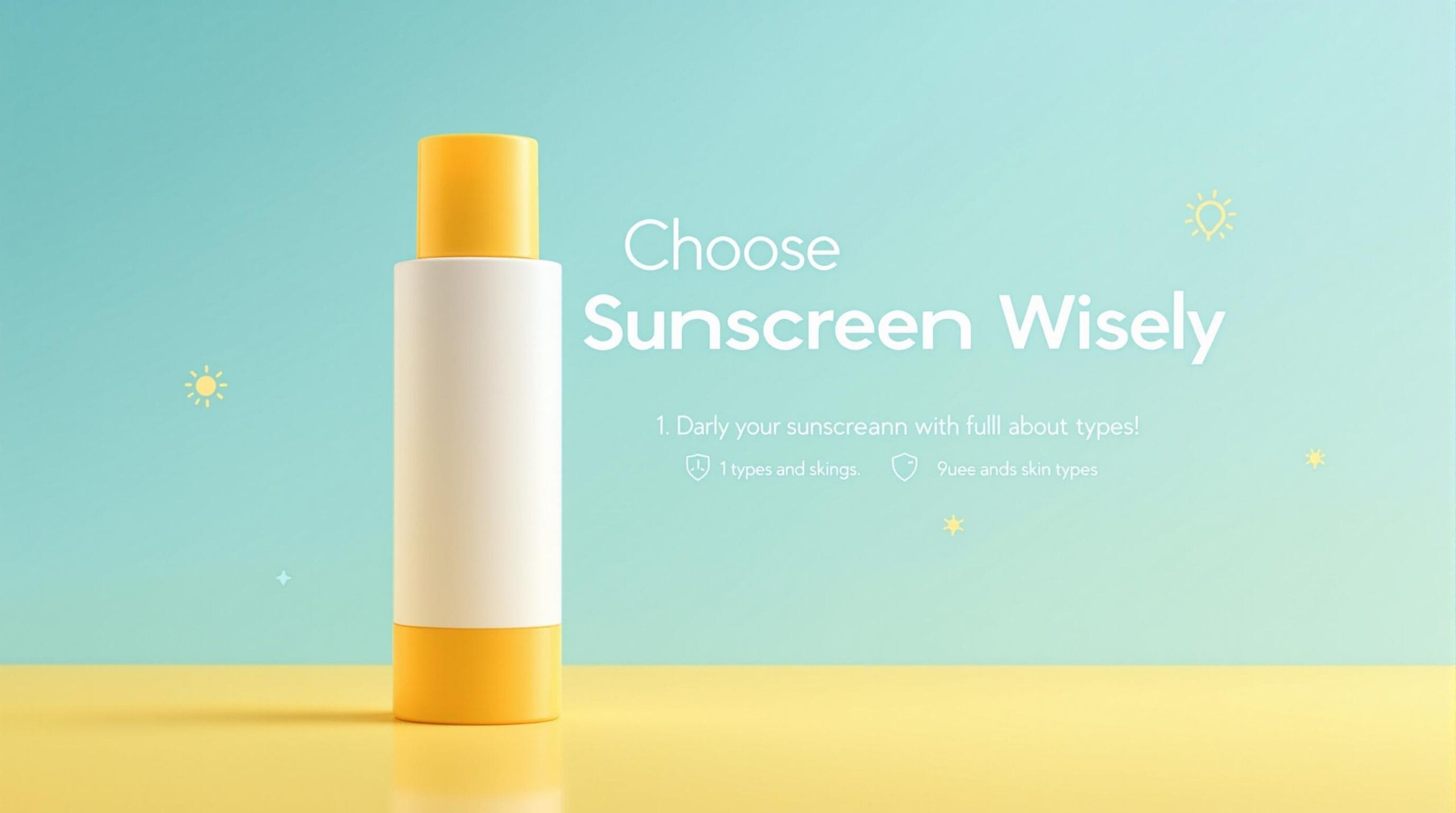
The Sunscreen Saga: Why It Matters
Sunscreen plays a crucial role in skin health. It safeguards your skin from harmful UV rays, reducing the risk of skin cancer and preventing premature aging. Statistics reveal that consistent sunscreen use significantly lowers the risk of melanoma. Thus, understanding how to choose the right sunscreen becomes essential in your daily skincare routine.
Sunscreen 101: What to Look For
The market offers a wide array of sunscreen options, each with unique formulations. You will often encounter terms like mineral and chemical sunscreens. Understanding these, along with SPF and UVA/UVB protection, helps you make informed choices. Mineral sunscreens use active ingredients like zinc oxide to block UV rays, while chemical sunscreens absorb UV into the skin before it can cause damage.
SPF Explained: What’s in a Number?
SPF, or Sun Protection Factor, measures how well a sunscreen protects against UVB rays. A higher SPF rating indicates greater protection. However, SPF 30 versus SPF 50 does not mean double the protection. For most skin types, SPF 30 is adequate, offering 97% UVB protection when applied correctly.
Mineral vs. Chemical: Choosing Your Shield
Mineral sunscreens, featuring zinc oxide or titanium dioxide, sit on the skin’s surface to deflect UV rays. They’re often recommended for sensitive skin. Chemical sunscreens absorb into the skin, converting UV rays into heat released from the body. They are favored for their lightweight feel. Choose based on your lifestyle and preference.
Skin Type & Sunscreen: Match Made in Heaven!
Your skin type should guide your sunscreen choice. Oily skin benefits from oil-free, mattifying formulas, while dry skin thrives on hydrating ingredients. Acne-prone skin should seek non-comedogenic labels to avoid clogging pores. Matching your sunscreen to your skin ensures comfort and effectiveness.
Sensitive Skin? Here’s Your Go-To!
Sensitive skin requires gentle care. Hypoallergenic and fragrance-free options reduce the risk of irritation. Look for sunscreens with fewer additives, and consider mineral formulations. Products labeled as safe for conditions like rosacea can offer extra reassurance.
Application Perfection: How to Apply Sunscreen
Proper application ensures maximum protection. Use about one ounce (a shot glass full) to cover exposed areas. Apply 15 minutes before sun exposure, and reapply every two hours or after swimming or sweating. Avoid skipping any spots for full coverage.
Reapplication Riddles: When and How Often?
Reapply every two hours, especially when outdoors. If you’re swimming or sweating, increase reapplication frequency. Carry a spray or stick sunscreen for easy touch-ups without disrupting makeup.
Beyond the Beach: Daily Sunscreen Necessity
Everyday sunscreen use is vital, regardless of the weather. UV rays penetrate clouds and glass, meaning indoor exposure is a concern. Daily use minimizes risks of skin damage and maintains youthful-looking skin over time.
Budget or Luxury: Finding the Best Fit
Sunscreen options span various price ranges. Expensive does not always mean better. Evaluate products based on ingredients and skin compatibility rather than cost. Both high-end and affordable brands offer quality protection.
Top Picks for Every Pocket!
Consider these sunscreen options:
– For oily skin: Neutrogena Clear Face SPF 55 ($10), La Roche-Posay Anthelios Clear Skin SPF 60 ($30).
– For sensitive skin: Aveeno Positively Mineral Sensitive Skin Sunscreen SPF 50 ($12), Blue Lizard Australian Sunscreen Sensitive SPF 30+ ($15).
– Eco-friendly: Raw Elements De-Mystifying Mineral Sunscreen SPF 30 ($18) and Thinkbaby Safe Sunscreen SPF 50+ ($11).
Sunscreen options cater to every need and budget.
The Final Shield: How to Make Your Choice
Choosing sunscreen involves understanding your skin type, lifestyle, and personal preferences. Consider SPF, formulation, and specific skin needs to find the best option. Remember, consistent use offers long-term protection and maintains skin health.
FAQs: Your Sunscreen Questions Answered!
Do I need sunscreen on cloudy days?
Yes, UV rays penetrate clouds, making sunscreen necessary.
Can I skip sunscreen if I’m wearing makeup with SPF?
No, makeup SPF is often inadequate. Always apply sunscreen under makeup for sufficient protection.
How do water-resistant sunscreens work?
They maintain protection while swimming or sweating. Reapplication post-activity keeps protection effective.
Conclusion: Embrace the Rays Safely!
Educating yourself on the right sunscreen helps protect your skin from long-term damage. Prioritize sun care to enjoy outdoor activities safely and maintain your skin’s health and appearance.







